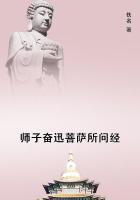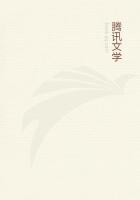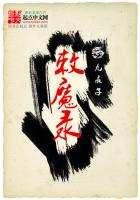Brown says, was "evidently thrown off at a heat," was printed in London and published at Newport Pagnel. Bunyan being entirely unknown to the world, his first literary venture was introduced by a commendatory "Epistle" written by Gifford's successor, John Burton. In this Burton speaks of the young author - Bunyan was only in his twenty-ninth year - as one who had "neither the greatness nor the wisdom of the world to commend him," "not being chosen out of an earthly but out of a heavenly university, the Church of Christ," where "through grace he had taken three heavenly degrees, to wit, union with Christ, the anointing of the Spirit, and experience of the temptations of Satan," and as one of whose "soundness in the faith, godly conversation, and his ability to preach the Gospel, not by human aid, but by the Spirit of the Lord," he "with many other saints had had experience." This book must be pronounced a very remarkable production for a young travelling tinker, under thirty, and without any literary or theological training but such as he had gained for himself after attaining to manhood. Its arrangement is excellent, the arguments are ably marshalled, the style is clear, the language pure and well chosen. It is, in the main, a well-reasoned defence of the historical truth of the Articles of the Creed relating to the Second Person of the Trinity, against the mystical teaching of the followers of George Fox, who, by a false spiritualism, sublimated the whole Gospel narrative into a vehicle for the representation of truths relating to the inner life of the believer. No one ever had a firmer grasp than Bunyan of the spiritual bearing of the facts of the recorded life of Christ on the souls of men. But he would not suffer their "subjectivity" - to adopt modern terms - to destroy their "objectivity." If the Son of God was not actually born of the Virgin Mary, if He did not live in a real human body, and in that body die, lie in the grave, rise again, and ascend up into heaven, whence He would return - and that Bunyan believed shortly -in the same Body He took of His mortal mother, His preaching was vain; their faith was vain; they were yet in their sins. Those who "cried up a Christ within, IN OPPOSITION to a Christ without," who asserted that Christ had no other Body but the Church, that the only Crucifixion, rising again, and ascension of Christ was that WITHIN the believer, and that every man had, as an inner light, a measure of Christ's Spirit within him sufficient to guide him to salvation, he asserted were "possessed with a spirit of delusion;"deceived themselves, they were deceiving others to their eternal ruin. To the refutation of such fundamental errors, substituting a mystical for an historical faith, Bunyan's little treatise is addressed; and it may be truly said the work is done effectually.
To adopt Coleridge's expression concerning Bunyan's greater and world-famous work, it is an admirable "SUMMA THEOLOIAEEVANGELICAE," which, notwithstanding its obsolete style and old-fashioned arrangement, may be read even now with advantage.
Bunyan's denunciation of the tenets of the Quakers speedily elicited a reply. This was written by a certain Edward Burrough, a young man of three and twenty, fearless, devoted, and ardent in the propagation of the tenets of his sect. Being subsequently thrown into Newgate with hundreds of his co-religionists, at the same time that his former antagonist was imprisoned in Bedford Gaol, Burrough met the fate Bunyan's stronger constitution enabled him to escape;and in the language of the times, "rotted in prison," a victim to the loathsome foulness of his place of incarceration, in the year of the "Bartholomew Act," 1662.















